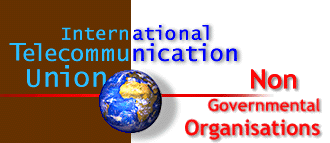
ITU-D Study Group 2 Question 10g/2
Enhancing the Capacity of NGOs to achieve Development Aims, through the use of Telecommunication
Executive Summary
The Question
Increasingly, development efforts in less and least developed countries are being led by national and international NGOs, recognised by governments, the UN system and others as key actors. Some are directly involved in media (e.g. community radio and television, development video, telecentres); others use telecommunication to achieve their aims (e.g. aid agencies, training and educational initiatives, local economic initiatives etc.); while others still are generally aware of the important role of telecommunication but have yet to come to grips with the issues and possibilities.There is a danger that many opportunities to enhance development using telecommunication are being lost, because of lack of awareness of potential especially of new technologies, lack of coordination between NGOs, national authorities and private sector, (often unintended) obstacles in national and international broadcasting policy and telecommunication regulation, and even poorly designed international standards that impede appropriate technologies.
This is the final report of the ITU-D Focus Group constituted at the Malta WTDC in 1998 to examine these problems in the hope that the solutions identified will significantly increase the capacity of NGOs to achieve their development aims, through the use of telecommunication and information technologies.
The formal question addressed by the Focus Group was Study Group 2, Question 10g/2:
"What is the actual and potential impact of current telecommunication trends on the activities of development NGOs (non-government organisations), and what policies and actions can enhance their capacity to utilise telecommunication more effectively to achieve development aims?"
NGO Strategic use of Telecommunications
In its deliberations, and based on written submissions received, the Focus Group concludes, not surprisingly, that NGOs are making strategic use of telecommunications in order to:
